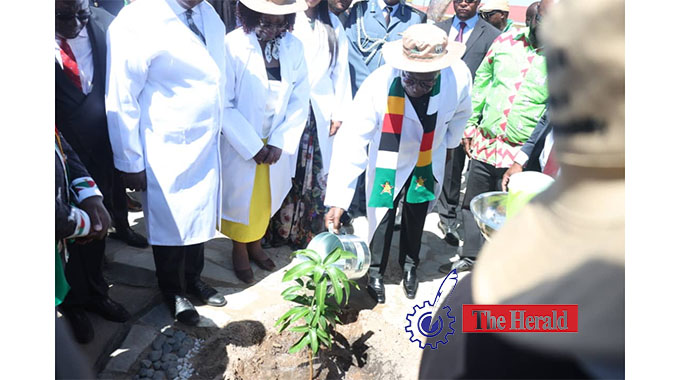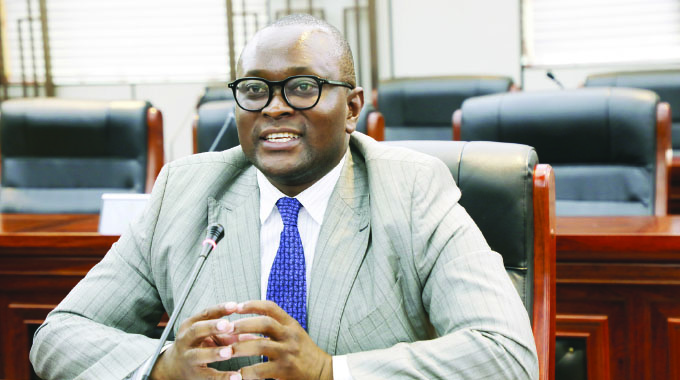‘Kariba South cost not inflated’

Golden Sibanda Senior Business Reporter
STATE power utility Zesa Holdings has reiterated the factors behind the $178 million cost disparity between extensions to Kariba South and Kariba North power stations, saying this was due to auxiliary works and other inescapable development expenses.
Zesa, through its generation arm, Zimbabwe Power Company, signed a $355 million engineering procurement and construction (EPC) contract with Sino Hydro in 2013 for the 300 megawatt extension of Kariba South’s power generation capacity.
The existing plant had capacity of 750MW, but Government took the decision to expand the production capability of the power station in the face of a widening and debilitating power deficit in the country.
Zesa’s clarification comes after the first unit of Kariba South extension came on line in December last year, while the second unit is scheduled to start feeding the grid by end of March.
“The auxiliary works, which include replacement and refurbishments of the existing plant, together with financing charges, interest payments, permitting and licensing, consultancy fees and other project development costs on the extension works are estimated at $178 million, giving a total of $533million.”
Zesa said the difference in costs with the Zambian project included that the Zambia’s plant is on one site, while Kariba South extension is on two sites. Further, the tunnelling on Zimbabwe’s side was significantly longer than on the north bank power station.
Zimbabwe is currently able to generate an average of 1 100MW against depressed demand for power at peak periods of 1 400MW.
Demand is projected to grow exponentially once the economy recovers.
The country is experiencing power shortages because it did not invest significantly into power generation for nearly two decades.
The existing 750MW Kariba South Power Station will therefore, be contributing a total of 1050MW to the national power grid by March.
However, despite Zambia incurring less ($278 million) on Kariba North, which was increased by a further 360MW, Zimbabwe was quoted significantly higher, $355 million just for the engineering, procurement and construction (EPC) cost to add 300MW.
Both power stations share Kariba Dam for water as a source of energy and are adjacently located, which ignited debate on why the cost of extending their capacities was significantly big.
A further, $178 million will be incurred on auxiliary works and other development costs, taking the total for Kariba South project to $533 million. This differential has often ignited debate, including in Zimbabwe’s political spheres amid fears the cost was inflated.
The State power utility also said the rock on the local side was more unstable and sand had to be imported to stabilise slopes and that there was about four years timing difference on the commencement of the projects, which brings in the inflation factor.
Zesa said that the extra capacity at Kariba South Power Station is a welcome development as it reduces electricity imports and provides flexibility to the maintenance of the power utility’s plants.
To date, more than 900 locals have been employed by the project and more people will be employed to operate the extension units.
Zimbabwe is working on a number of other power generation projects, which have been lined up for execution by ZPC, chief among them being the 600MW Hwange Power Station expansion project to be developed adjacent to the existing 920MW power plant where construction is due to commence soon.
An engineering procurement and construction (EPC) contract and finance agreements to fund the extension works are already in place and obligations from the financiers are almost settled.
The EPC contract for the Hwange Power Station was signed in 2014 and the principal finance agreement was sealed in 2015 in the presence of the former President of Zimbabwe, Robert Mugabe and the President of the People’s Republic of China Xi Jinping.
The EPC value of the Hwange expansion project is $1,17 billion and the total project cost inclusive of financing charges and other project development costs is estimated at about $1,45 billion.
Designs for the power project are in progress and the contractor, Sino Hydro is currently on site preparing the construction camp.
Other projects in the pipeline are the Munyati 100MW solar project, which signed at an EPC cost of $165 million with ZTE, Insukamini 100MW solar project, signed at an EPC cost of $146 million with Number 17 Metallurgical Construction Company as the contractor as well as Gwanda solar project, signed at an EPC cost of $172 million with Intratrek Zimbabwe as the contractor.
Negotiations are ongoing to reduce the EPC costs on the back of falling solar module prices, which is expected to benefit consumers.
The 30MW Gairezi Hydroelectric project is another candidate power generation project. This project already relates to an EPC contract signed in 2016 with an Indian consortium made up of Angelique International and Bharat Heavy Engineering. The EPC cost of the Gairezi project is $109 million. Fundraising efforts are underway for both the solar projects and Gairezi scheme.








Comments